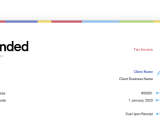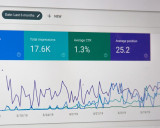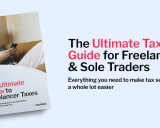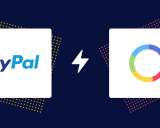
EOFY tips: bring forward expenses, defer income
The end of the financial year can be a busy and stressful time for freelancers. But attending to a few details can pay dividends.
Article contents
− +
Deferring income – or not
Deferring income can be problematic, as there are rules about when income should be recognised in different circumstances. The general idea is that when you defer income you also defer paying the tax on it. As a simple example, if you are busy this month and you don’t get round to sending any invoices until July, the corresponding income will occur in 2017-18, not 2016-17. Apparently the ATO isn’t too concerned about such practices.
This is particularly valuable if you will be paying tax at a lower rate next year. Perhaps you expect your income to drop, taking you into a lower tax bracket. That doesn’t necessarily reflect pessimism – it could be that you’ve decided it’s the right time to give up your job to concentrate on what has so far been a side business.
And this year it is especially relevant to those making more than $180,000 (yes, we wish!) due to the end of the deficit levy (more formally the Temporary Budget Repair levy) that was introduced in 2014 for three years with the intention of helping to reduce the Federal deficit. For those people, the removal of this two percent levy means the total tax on a marginal dollar will be slightly less next year.
On the other hand, if you’re expecting 2017-18 to be significantly more profitable than 2016-17 to the extent that you would move into a higher tax bracket, it may be worth maximising this year’s profit in order to reduce next year’s, thus reducing the total tax payable across the two years.
At this late stage you may struggle to persuade clients to pay their bills sooner rather than later unless it suits their own strategies, but you don’t know what they are trying to achieve. All you can be certain of is that invoices won’t be paid until you send them, so invoice promptly if you hope for prompt payment.
Bringing forward expenditure
Bringing forward expenditure – eg, buying a new computer, air compressor or trailer before 30 June rather than on or after 1 July – means you see its impact on your tax bill much sooner. Another advantage is that there are often good deals to be had at this time of year. But don’t be tempted to buy something you don’t really need or can’t really afford. If a purchase eats into your cash reserves to the extent that you have to borrow to meet your next payments to important suppliers or the ATO, it probably wasn’t a bargain.
Remember that the immediate deductibility of many capital items costing less than $20,000 continues into 2017-18 for small businesses, so you won’t miss out on that concession if you aren’t in a position to invest in new equipment before the end of the month, or if you are working to reduce your net income next year (eg, to avoid bracket creep).
Note also that the arrangement now covers businesses with turnover up to $10 million. If that sounds like a lot of money, remember that turnover is very different from profit – someone who buys, improves and resells one prestige classic car a month could exceed the old $2 million ceiling over the course of a year.
Donations and superannuation
Timing your expenditure also applies to any tax-deductible donations you’ve been considering. Unless you’ve decided it’s more important to reduce next year’s income, make them by 30 June providing you have enough cash on hand.
And don’t forget your superannuation contributions. Freelancers and sole traders don’t get the benefit of employer contributions so it’s up to you to stash away some money for your retirement, even if that seems a long way off.
How much you should contribute and how much of it you should claim as a tax deduction isn’t a simple matter. Professional advice is especially important this year because significant changes in the rules come into play on 1 July.
Record keeping
Finally, get your records into the best state you can before visiting your accountant or tax agent in order to minimise the amount of billable time they spend knocking your data into shape.
Rounded users should already be well prepared.
The suggestions above come from various financial professionals, but should not be interpreted as financial advice. Where appropriate, seek professional advice to suit your situation.
Contents
Join newsletter
ABOUT ROUNDED
Invoicing and accounting software for sole traders. Get paid faster and relax at tax time.
























